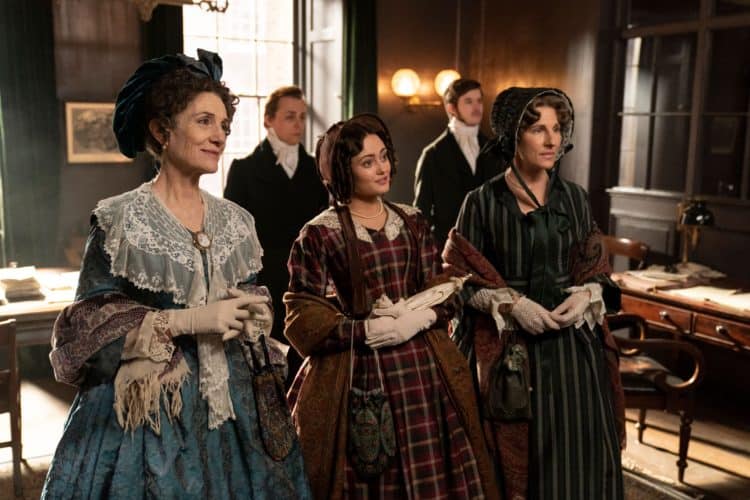
If you love a good piece of historical fiction, you’ll probably love the new ITV series, Belgravia. Set in the 1840s, the show follows a group of upperclass London residents whose lives aren’t as perfect as they appear on the surface. Written with the perfect combination of history and drama, Belgravia boasts an all-star cast that includes some of Britain’s most talented stars. With a successful first season under its belt, Belgravia might just be well on its way to becoming the next Downton Abbey. Continue reading for 10 things you didn’t know about Belgravia.
1. The Show Airs In The US And The UK
American fans who love British TV often have to go out of their way to find it. Luckily, that isn’t the case with Belgravia. In addition to airing on the British network, ITV, the show also aired each week on in the United States on Epix.
2. Some Of The Characters Were Real People
The best pieces of historical fiction also draw on some of the dramatic elements of reality. The plot of Belgravia is fictional, however, some of the characters who appear in the show were real people. For example, Arthur Wellesley, Duke of Wellington and Sir William Ponsonby actually existed.
3. The Show Is Based On A Novel
Recently, it seems like some of the best things on TV are based on books. Belgravia is no exception. The TV series Belgravia is based on a novel of the same name. The book was was written by Julian Fellowes and released in 2016.
4. Belgravia Is An Actual Place
If the name Belgravia sounds familiar to you, that’s probably because it’s a place. Belgravia is an upperclass area in London that has a a history that dates back to the 19th century. Many of the buildings in the area were designed by the well-known British architect, Thomas Cubitt.
5. The Show Was Created By The Person Who Created Downton Abbey
Downton Abbey fans were likely very excited to hear about a show like Belgravia. Although there are some differences between the shows, they do have something very interesting in common. They were both created by the same person: Julian Fellowes who also wrote each episode of Belgravia. At this point, it’s impossible to deny the fact that Fellowes is a genius when it comes to creating period dramas.
6. The Show Wasn’t Filmed In London
The show takes place in London, however, it was filmed in Edinburgh, the capitol of Scotland. According to the show’s executive producer, Gareth Neame, “It’s quite impossible to shoot in Belgravia. It’s the heart of London, it’s filled with embassies; there’s no way you can shut down these parts of London and have horses and carriages going around for four days.” For that reason, they decided to shoot the show in Scotland. I think many viewers would agree that the visuals ended up turning out great.
7. The Show Has A Dark Twist
Belgavia shares some similarities with Downtown Abbey, but Julian Fellowes has expressed that the shows have very different tones. During an interview, Fellowes said, “I think it’s darker than Downton. The servants are working people; they’re doing their jobs because those are the jobs that were available. It’s not sentimental. In the country, people tended to work for families for many years and live in cottages on their estate, but that wasn’t true in London. ”
8. Fans Are Asking For A Second Season
Many viewers were disappointed with how Belgravia ended. Still, that didn’t stop them from heading to the Internet to express their desire for another season. Originally, the show was only meant for one season, but that could change due to the amount of demand.
9. The Dog’s Real Name Is Emma
Although the cast is full of superstars, an unlikely character ended up stealing the show. An adorable little dachshund named Agnes. In fact, some characters said that Agnes was the most likable character on the show. Outside of the show, the dog’s name is actually Emma.
10. The Story Is Timeless
Some people don’t enjoy period pieces because they don’t feel entertained by stories that happened hundreds –sometimes thousands– of years ago. One of the best things about Belgravia, is that the show is timeless. Lots of things may have changed since the 1800s, but many of the themes remain relevant today. Whoever said that the olden days were much less complicated has clearly never tuned into Belgravia.
 Follow Us
Follow Us





